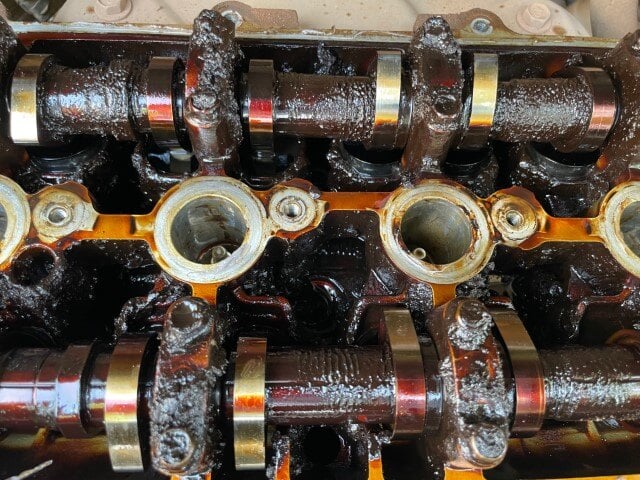Healthy Oil Series: How Often Should I Change My Oil?
Change your oil every 3 months or 3,000 miles. You hear the commercials from oil change quick-lube places repeating this. Do you really need to...

Those who read our Healthy Oil blog series from this past year may remember the advice we gave on the critical issue of "how often should I change my oil?" We've added a lot more readers since the Healthy Oil series came out, so it's time to revisit the information for everyone's benefit.
Oil change companies and old school car owners swear by the guideline of "3 months or 3,000 miles" for an oil change interval. Now, there's nothing wrong with changing your oil at an interval like this. Unless you realize you don't really have to change it that often. Changing your oil at frequent intervals like this will keep your oil cleaner but will also waste money.
Your vehicle owner's manual will have guidelines therein on how often to change the oil and what type of oil to use. You should consider this to be your Bible when it comes to the unbiased recommendations for your oil change interval.
Auto makers don't really have any axe to grind when giving out recommendations on these intervals. They're not trying to sell you more oil. Some could argue they actually want the cars to wear out faster (hence implying that they would purposefully give you advice that was too long) but that's a bit of a conspiracy theory that we don't really buy. Auto makers want customer satisfaction for their vehicles above everything else. It's in their best interests to give you the best advice known for taking care of the vehicle and making it last longer.
Without surveying every owner manual in the market, many auto makers recommend an oil change interval of between 5,000 and 7,000 miles. Certainly a lot longer than the 3,000 mile mantra we've heard. In newer vehicles, however, manufacturers are extending these recommendations out even further.
Starting with 2007 models and later, Ford Motor Company has been recommending oil change intervals of 7,500 miles. How is this possible? The engineers at Ford would cite modern oils of higher quality than before and with better detergent packages built in. They start with a higher-quality base oil than in the past, have more antioxidants to extend lubricating properties of the oil, and more of other additives that keep deposits from forming on engines. These differences mean longer lasting oils than before.
Other companies like Honda may not even make written recommendations, because they have sensors that monitor the oil properties and notify the driver when it's about time to get their oil changed. Certainly sounds like space age stuff there.
As with lots of things, there are exceptions to the rule.
First, believe it or not there is an exception to this 7,000 mile rule in the opposite direction of what you might think. GM's director of service operations claims that you can wait up to 12,000 miles to change your oil but only if you don't run the vehicle in very hot or very cold weather or put a lot of towing stress on the engine.
For the rest of us, the common exceptions of the longer-change rule apply when we fall under what's called 'Severe Service'. This set of driving parameters covers a few more people than one might think. Severe Service means driving on lots of short trips, driving in very hot weather with dusty conditions, and doing stop-and-go driving.
Each of these conditions puts added stress on engine oil that shortens its life. Short trips, especially in cold weather, affect the oil due to water condensation building up in the oil when the vehicle sits overnight. This condensation isn't necessarily a problem if the engine is run long enough for the oil to heat up properly; this causes the water to be "burned out" of the oil with no ill effect on the engine. Driving on short trips to the corner and back don't allow this to happen and the water stays in the oil, shortening its life and effectiveness.
Dusty conditions in hot weather shorten oil life by allowing more particulate impurities to build up in the oil. Changing the oil removes these particle contaminants before they have a chance to scratch and wear the metal surfaces. More dusty particulates also places stress on the dispersant additives in the oil - additives the oil comes with that that keep sludge and particulates suspended in the oil film and not on the metal surfaces.

Change your oil every 3 months or 3,000 miles. You hear the commercials from oil change quick-lube places repeating this. Do you really need to...

This is a simple question that we rarely think to consider. Does an oil change affect my car's performance? If I don't change my oil often enough,...

Even as vehicles have gotten more sophisticated in the last 20 years, there’s still one piece of important maintenance that almost anyone can still...